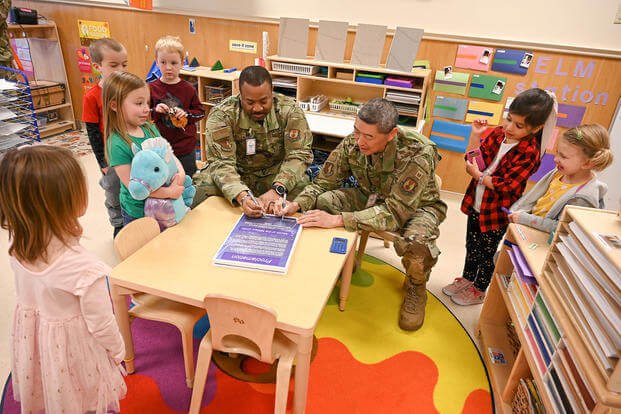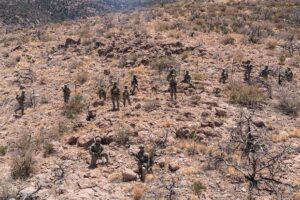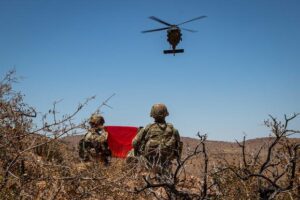Hill Air Force Base Closes Day Care Amid Staffing Challenges
Families at Hill Air Force Base in Utah are facing significant challenges following the closure of one of the base’s two child development centers. The closure comes in the wake of staffing difficulties attributed to a hiring freeze initiated by President Donald Trump’s administration.
Earlier this month, it was reported that Hill Air Force Base, a major installation in terms of both population and size, began notifying families of the potential closure of one of its child care facilities. These staffing issues have been partly linked to an effort by Trump and adviser Elon Musk to reduce the federal workforce.
“CDCs traditionally face high turnover, and several recent departures in conjunction with the hiring freeze have reduced the number of supervisors and trainers available,” said Kendahl Johnson, a spokesperson for Hill Air Force Base. “Maintaining two open CDCs at current personnel levels would pose an unacceptable risk to the 200 children who remain in care at Hill AFB.”
On March 12, families were informed about the impending closure, and by March 18, a Department of Defense memo was released outlining exemptions to the hiring freeze. This memo included positions in “child and youth programs staff” and “instructors or facility support staff at DoD schools or child care centers.”
Unfortunately, this exemption came too late for the affected families at Hill Air Force Base. Johnson stated that while the freeze is now in effect, the process of hiring, onboarding, and training will be time-consuming.
Kayla Corbitt, a military spouse and founder of the Operation Child Care Project, criticized the short notice given to the 31 families who were disenrolled from the CDC, stating, “A week’s notice to find alternative care is a harsh timeline. These are families who will likely need to cobble together care and need safety planning to ensure their children are safe while they return to the mission.”
The disenrollment affected priority types 2A through 3F, which includes single or dual defense employees, Coast Guard employees with various spousal statuses, defense contractors, deactivated National Guard and reserve personnel, military retirees, and active-duty military with non-working or part-time student spouses.
Corbitt highlighted the particular challenges faced by Guard and reserve families, noting, “Guard and reserve families are already disproportionately impacted with a lack of care access due to their on-again, off-again duty status. This swift loss of care will create additional hardships for a mission-essential community.”
Johnson assured that the base leadership is exploring all options to provide quality child care while the facility remains closed. This development follows previous incidents at the Utah installation, including allegations of child abuse and investigations into oversight and staffing failures.










